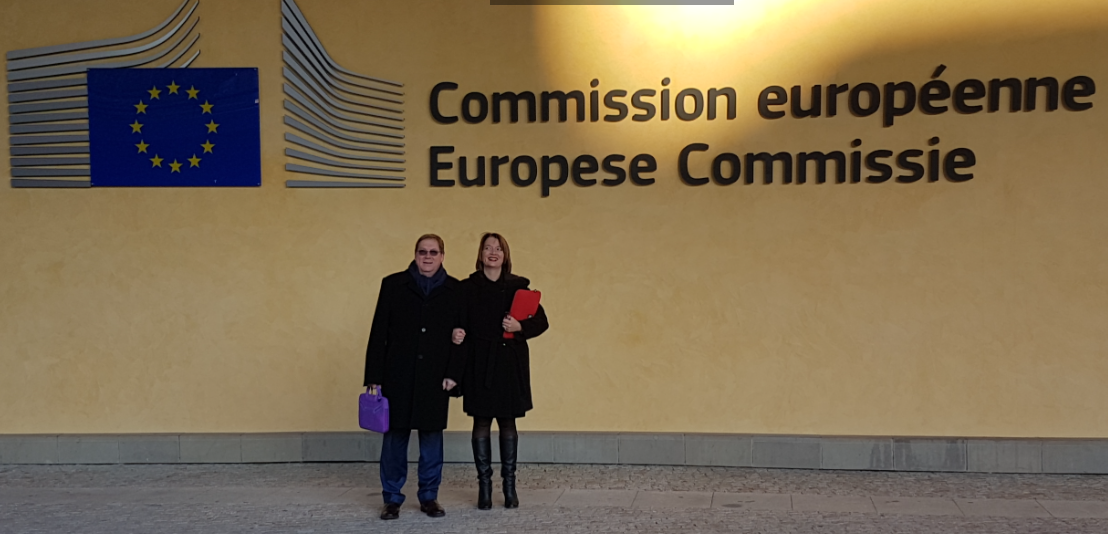Brussels, 30th November 2016 – Jon Barrick SAFE President and Valeria Caso President of the European Stroke Organisation of Stroke Professionals had a meeting today at the European Union Health Commission to discuss the quality of Stroke prevention, care and support within the countries of Europe.
SAFE and ESO made a number of proposals aimed at gathering EU support for encouraging countries across Europe to improve stroke intervention. Stroke now accounts for more than 9 percent of all deaths in Europe and is the leading cause of long term severe disability.

Jon Barrick, SAFE President, and Valeria Caso, President of ESO
Topics discussed included the Health Commissioners engagement with proceedings at a Stroke Summit meeting to be held in Brussels on May 11th 2017, the dissemination of the Burden of Stroke report with data on the stroke care pathway performance in each European country, and a report on the current situation around acute stroke care. Also discussed were support for the SAFE, ESO and others initiative to produce a stroke European action plan to be launched in May 2018, and the potential for creation of an economic burden of stroke report by 2019.
The Stroke European action plan will be the sequel to the Helsingborg declaration of 2006, which set objectives to be achieved by 2015. This is now redundant and many new developments and treatments have occurred since its first appearance, and there is now an opportunity to create initiatives to drive down the death and disability rates from stroke.
Other topics covered were the need for greater awareness of stroke, more effort to be made in preventing stroke, and the need to allocate more resources for stroke research generally. SAFE and ESO were encouraged to provide more examples of good practice to be shared country to country, and questions were asked concerning possibilities of good practice pilot activity.
There was found to be a huge overlap between the work of SAFE and ESO, and that of the EU Health Commission, with all parties seeking to make sure stroke care is sustainable, efficient, and supports resilience within health care systems (the capacity to buffer change, learn and develop, enhance adaptive capacity in a situation of rapid treatment transformations).
As such there was agreement that more work to combat stroke makes a positive contribution to the Health programme aims of the EU https://ec.europa.eu/health/programme/policy/index_en.htm.
Further activity and mutual support is hoped for.




